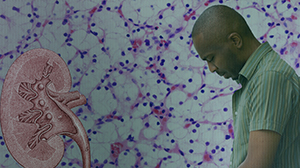NEW YORK (Reuters Health) – Rituximab monotherapy is “a very good option” for severe cryoglobulinemic vasculitis (CV), according to the authors of an Italian study published online December 6 in Arthritis & Rheumatism.
“RTX (rituximab) is superior, also in the long term, to standard immunosuppressive therapy for severe CV where antiviral therapy is not indicated,” they conclude. “In this setting, RTX monotherapy may represent first therapeutic option, associated with lower doses of glucocorticoids when possible.”
Dr. Salvatore De Vita, with Azienda Ospedaliero-Universitaria “S. Maria della Misericordia” and the University of Udine, and colleagues note that rituximab has been used successfully to treat cryoglobulinemic vasculitis, but studies have been retrospective with limited follow-up.
They therefore planned a prospective randomized controlled trial of rituximab compared to conventional immunosuppressive approaches in patients who had not responded to or were not candidates for antiviral therapy.
In this trial, cryoglobulinemic vasculitis was related to hepatitis C in most (93%) of the recruited patients. They were stratified by manifestation: ie, skin ulcers, active glomerulonephritis, or refractory peripheral neuropathy, and then randomized to rituximab or to conventional treatment, which could include glucocorticoids, azathioprine or cyclophosphamide, or plasmapheresis.
Glucorticoids could be given with rituximab, but with attempted reduction in dose.
The original aim was to enroll 124 patients, but a significant difference in response was seen early and enrollment was stopped once 57 patients became available for intention-to-treat data analysis.
The primary endpoint was the proportion of patients remaining on their assigned treatment at 12 months after randomization. “Survival of treatment in RTX Group vs non-RTX Group was 64.3% vs 3.5% (difference of 60.8%, P<0.0001) at month +12,” the investigators report.
They also noted that the Birmingham Vasculitis Activity Score did not change in the conventional treatment group, but declined from 11.9 at baseline to 7.1 at month 2 and to 5.4 at month12 with rituximab treatment.
Complete or partial responses to rituximab were seen in 5 of 5 patients with skin ulcers, 4 of 7 with glomerulonephritis, and 11 of 16 patients with peripheral nephropathy, the report indicates.
In the conventional treatment group, 23 of 28 non-responders switched to rituximab, and a response was noted within 6 months in 14 of them (60.9%), the authors point out.
There were 5 serious adverse events in the original rituximab group, 3 in the non-rituximab arm, and 6 among patients who switched to rituximab, Dr. De Vita and colleagues report.
In summary, “This controlled, randomized trial demonstrates the superiority of RTX monotherapy, as compared to the standard of care,” they conclude. “This grade of evidence was previously lacking and, even if the study was not blinded, the present results support the use of RTX in this disease.”
SOURCE: A randomized, controlled, trial of rituximab for treatment of severe cryoglobulinemic vasculitis
Arthr Rheum 2011.




